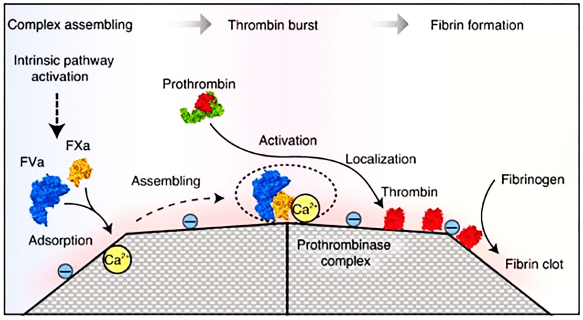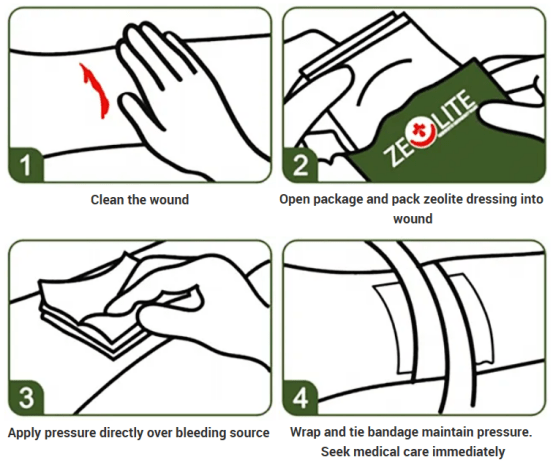PerfectSeal Z Fold Combat Gauze Hemostatic Dressing is a medical product used for controlling bleeding. It is made of a special type of clay called kaolin, which helps to promote blood clotting when it comes into contact with blood.
Rapid hemostatic gauze for military is a type of medical dressing that is made of a non-woven fabric that is coated with zeolite particles. Zeolite is a natural mineral that has been shown to have hemostatic properties used to stop bleeding in severe hemorrhages.
When the gauze comes into contact with blood, the zeolite particles on the surface of the gauze can rapidly enrich endogenous coagulation factors to form a protein corona, which in turn activates the intrinsic coagulation pathway. In-situ generated thrombin with high activity on the zeolite surface can accelerate the clotting progress, promote clot formation and stop bleeding faster.

| Developed for military use, Zeolite Rapid Hemostatic Gauze works to stop life-threatening bleeding after just 60 seconds of compression. |
| High hemostatic efficiency: 100% total hemostatic efficiency. |
| No Burning, no adverse |
| Easy to carry & operate |
| Ensure the biological safety |
| Flexible mesoporous Zeolite-Gauze |
| Effective for massive bleeding control |
| No acute systemic toxicity, No hemolysis, No pyrogen |
| No cytotoxicity; No delayed hypersensitivity; No intradermal stimulation |
| Product size: | 9cmx10cm-12ply(2pc/pack) |
| Material: | Zeolite+guaze |

Both zeolite hemostatic gauze and kaolin hemostatic gauze are medical dressings designed to help control bleeding by promoting blood clotting. However, there are some differences between the two.
Kaolin hemostatic gauze is coated with kaolin, a type of clay that has hemostatic properties. Zeolite hemostatic gauze, on the other hand, is coated with zeolite particles, a naturally occurring mineral with hemostatic properties.
Kaolin hemostatic gauze promotes blood clotting by activating the body’s natural clotting process, while zeolite hemostatic gauze promotes clotting by absorbing water from the blood, concentrating clotting factors, and promoting clot formation.
Both types of hemostatic gauze have been shown to be effective in controlling bleeding in various settings, and each has its own advantages and disadvantages. For example, zeolite is a natural, biocompatible, and biodegradable material, while kaolin has a longer history of use and a well-established safety profile.
Overall, the choice between zeolite hemostatic gauze and kaolin hemostatic gauze may depend on the specific clinical situation and the preferences of the healthcare provider.